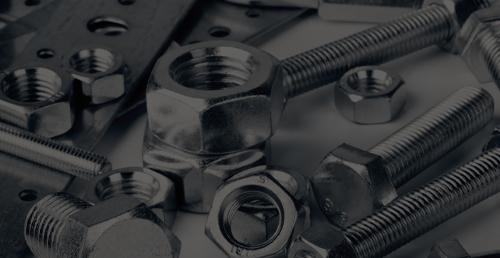Understanding the Principles of Thermal Expansion in Metal Fasteners and Their Applications
Understanding Metal Expansion Nuts An Overview
Metal expansion nuts are specialized fasteners designed to provide a secure grip in a variety of applications, particularly where expansion and contraction are common due to temperature fluctuations. These nuts are engineered to accommodate the physical changes that occur when metals expand and contract, ensuring a strong and lasting connection. In this article, we will explore the function, design, applications, and benefits of metal expansion nuts.
The Function of Metal Expansion Nuts
The primary function of metal expansion nuts is to maintain a tight fit in environments where materials are subject to thermal expansion. When metals heat up, they expand; conversely, they contract when cooled. Standard fasteners may loosen with these changes, leading to potential failures in machinery or structural integrity. Metal expansion nuts tackle this issue by utilizing a unique design that allows for movement while still securing the connection.
Typically, these nuts feature a tapered or split design, allowing them to expand or contract as necessary. This structure enables them to grip the surrounding material tightly as temperatures fluctuate, ensuring that they remain securely fastened even in dynamic environments.
Design Features
Metal expansion nuts are usually made from high-strength materials, such as stainless steel or alloy steel, to withstand the stresses of varying temperatures and loads. Their design may include features such as
1. Tapered Threads This design provides a wedging action that enhances grip when the nut is rotated. As it is tightened, the nut expands slightly, conforming to the shape of the host material. 2. Splitting or Slitting Many expansion nuts have a split or slotted structure, which allows for some movement without losing grip. This is crucial in applications where metal components expand in different directions.
3. Coatings To enhance corrosion resistance, metal expansion nuts are often coated with protective materials. This is especially important in harsh environments where moisture and other corrosive agents are present.
Applications
metal expansion nut

Metal expansion nuts are widely used across several industries, including
- Aerospace In aircraft assemblies where temperatures can vary dramatically, expansion nuts ensure secure fittings under extreme conditions. - Automotive These nuts can be found in engine components, where heat levels fluctuate, requiring reliable fastening solutions. - Construction In high-rise buildings or bridges, where temperature variations can lead to structural stress, expansion nuts play a critical role in maintaining integrity. - Manufacturing In machinery and equipment that undergo thermal cycles during operation, metal expansion nuts help reduce the risk of loose components.
Benefits
The use of metal expansion nuts offers several advantages
1. Improved Safety By maintaining a secure connection even under fluctuating conditions, they help prevent accidents and failures. 2. Longer Lifespan The ability to withstand temperature changes means less wear and tear on both the fastener and the host material, leading to longer-lasting assemblies.
3. Versatility Metal expansion nuts can be used in a wide range of applications, making them a valuable addition to any engineer's toolkit.
4. Cost-Effective While they may have a higher initial cost compared to standard nuts, their durability and reliability can lead to savings in maintenance and repair over time.
Conclusion
In conclusion, metal expansion nuts play a crucial role in a variety of industrial and engineering applications by providing secure, reliable connections even in fluctuating temperature environments. Their unique design allows them to adapt to physical changes in metals without compromising safety or performance. As industries continue to push the boundaries of materials and environments, the importance of such specialized fasteners will only increase, making them an essential component in modern engineering and construction.
-
Weatherproof Plastic Expansion Anchors for Outdoorព័ត៌មានJun.06,2025
-
Sustainability in the Supply Chain: Eco-Friendly TEK Screws Productionព័ត៌មានJun.06,2025
-
Load-Bearing Capacity of External Insulation Fixingsព័ត៌មានJun.06,2025
-
Double Head Bolts: Enhancing Efficiency in Industrial Machineryព័ត៌មានJun.06,2025
-
Corrosion Resistance in Chipboard Screws: Coatings for Wholesale Durabilityព័ត៌មានJun.06,2025
-
Butterfly Toggle Bolts : Enhancing Structural Resilienceព័ត៌មានJun.06,2025
